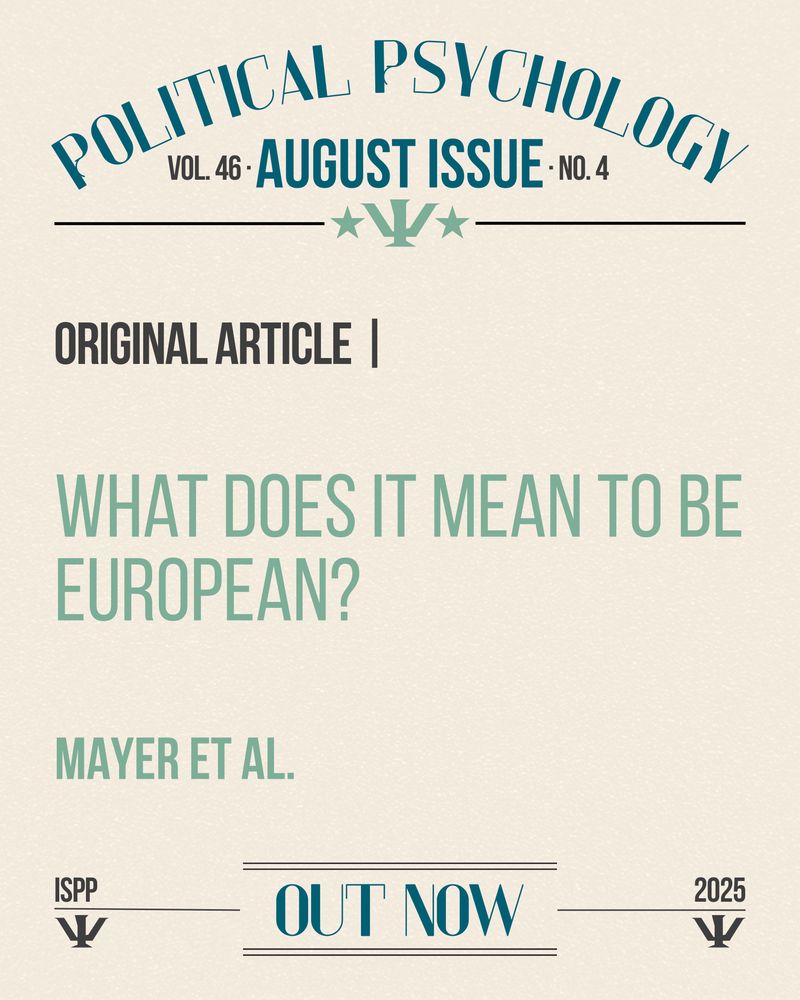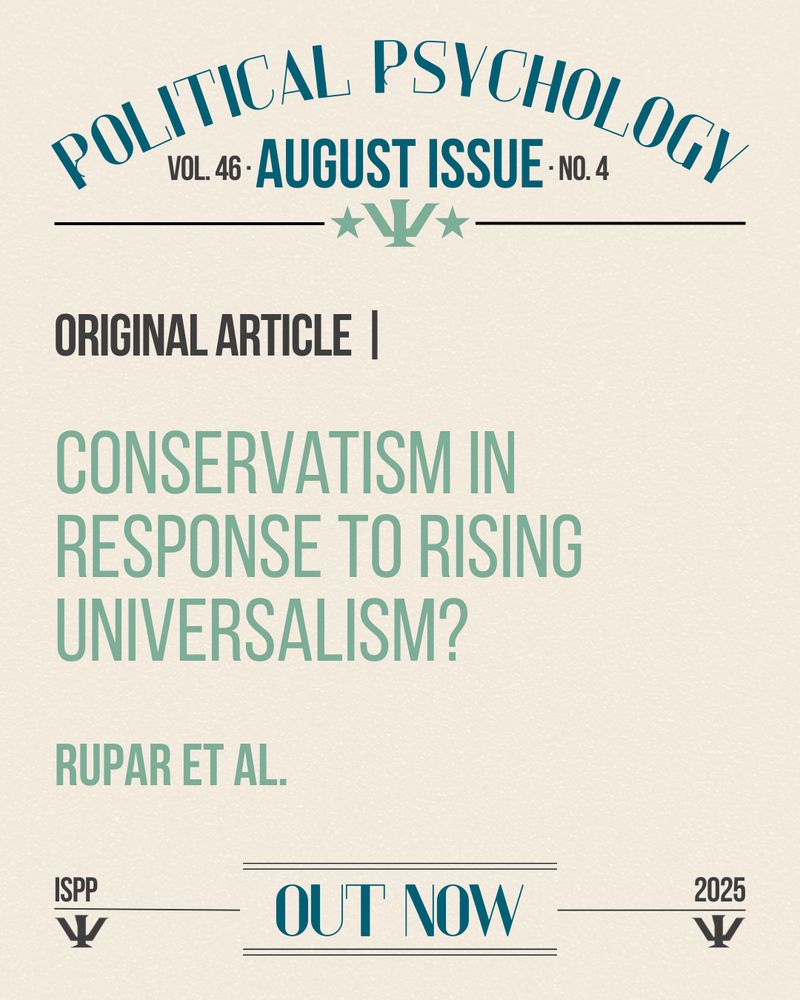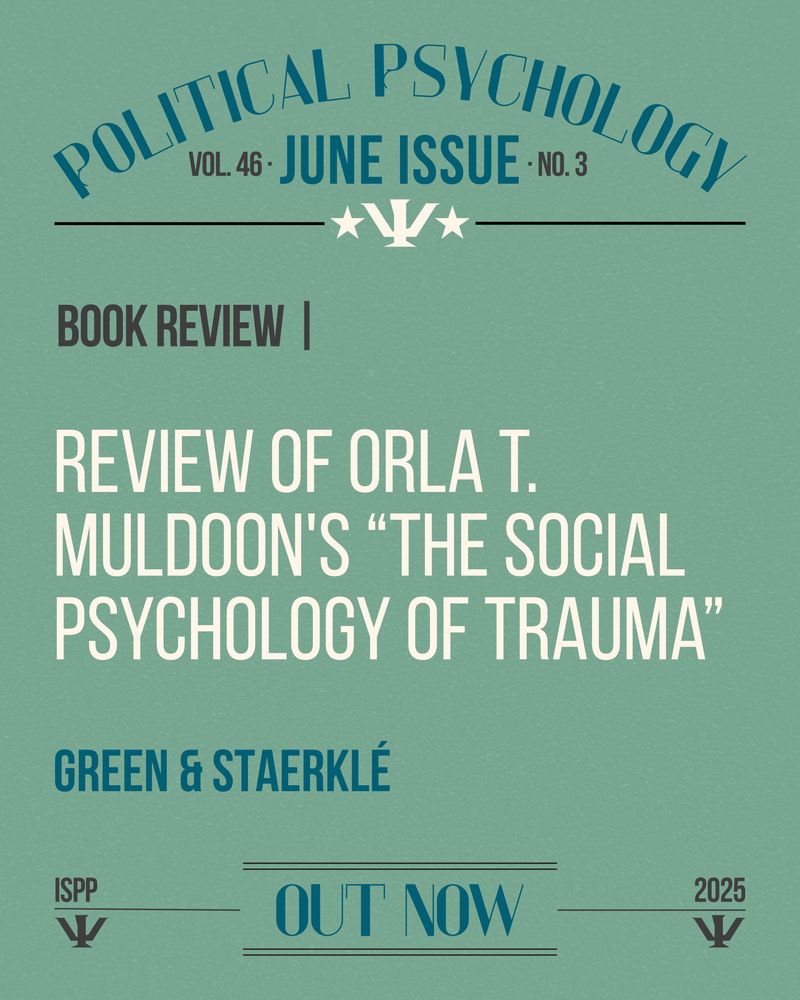Political Psychology
@ispp-pops.bsky.social
2K followers
1.8K following
83 posts
Political Psychology is a peer-reviewed academic journal published by ISPP (@polpsyispp.bsky.social)
co-EiC: @lizsuhay.bsky.social & @mjbsp.bsky.social
Follow us everywhere & current issue: linktr.ee/POPSjournal
Posts
Media
Videos
Starter Packs
Reposted by Political Psychology
Reposted by Political Psychology
Reposted by Political Psychology
Reposted by Political Psychology
Daryl Cameron
@dcameron.bsky.social
· Aug 31

Home - Consortium on Moral Decision-Making
Welcome to the Consortium on Moral Decision-Making A collaborative hub dedicated to unraveling the intricate threads of ethical choices. As a multidisciplinary alliance of scholars, thinkers, and prac...
moralconsortium.psu.edu
Reposted by Political Psychology
Reposted by Political Psychology
Pedro Magalhães
@pcmagalhaes.bsky.social
· Jul 28























